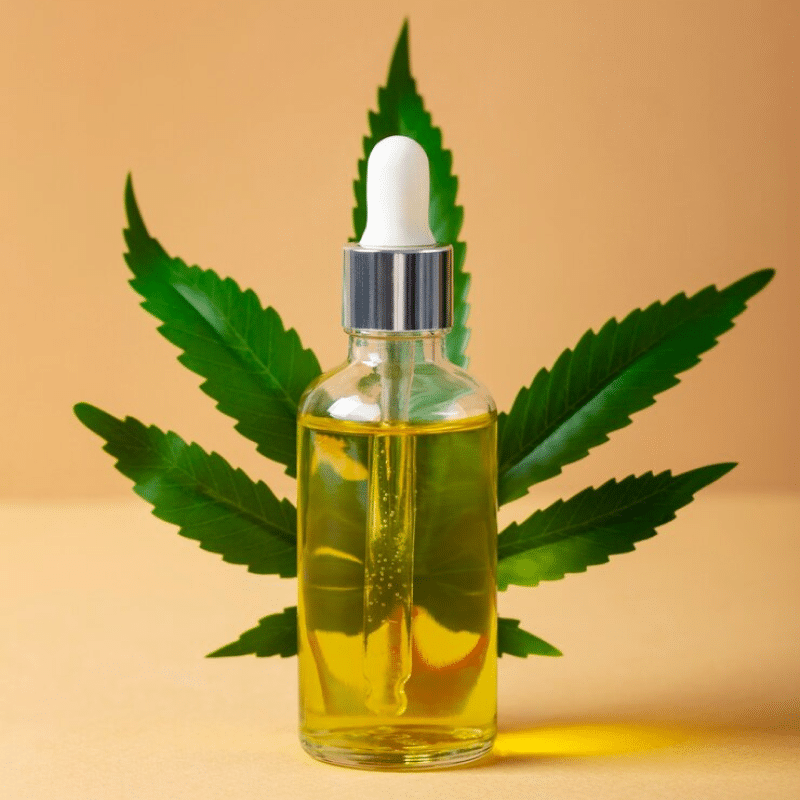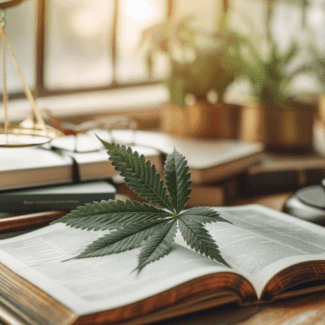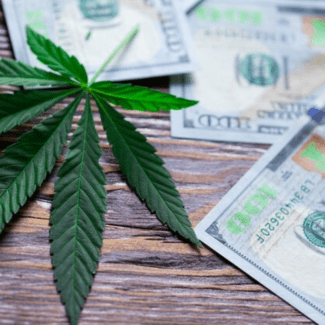The Rise of CBD and THC Alternatives: What’s Next?
As the cannabis industry expands, consumers are increasingly exploring alternatives to traditional CBD and THC. This article delves into the growing interest in cannabinoids such as CBN, CBG, and Delta-8 THC, highlighting their unique properties, potential health benefits, and the evolving regulatory landscape. It also discusses consumer demographics and preferences, emphasizing the shift towards non-intoxicating options and the demand for innovative products. The future of the cannabinoid market appears promising, driven by a quest for tailored experiences and health-conscious choices.

While the growth of the cannabis industry is now focusing on CBD and THC, those two compounds alone have taken consumers on a drive looking for other options like CBN, CBG, and Delta-8 THC.
This article serves to discuss the rise of the alternatives, why consumers are interested in them, and what the future holds for this evolving market.
Understanding CBD and THC Alternatives
Overview of Popular Alternatives
- CBN stands for Cannabinol. It is a weakly psychoactive cannabinoid. The aged THC is transformed into CBN through a number of conditions. It has powerful sedating effects; hence, it is applicable among disorders involving sleep. Its psychoactivity, compared to the latter, that is, THC, is weaker; hence, it is ideal for usage when one wants to attain relaxation without the menace of intensive intoxication.
- CBG is called “the mother of all cannabinoids.” Both CBD and THC get derived from this element. CBG is not psychoactive. There is more research for the possible benefits it can have. This includes anti-inflammation and antibacterial properties.
- Delta-8-THC is thought to be a minor cannabinoid, much like its cousin Delta-9-THC, which holds the title of major psychoactive cannabinoid. Unlike Delta-9, Delta-8 produces milder psychoactive highs. In general, it is characterized by a much clearer-headed experience with few of those side effects related to anxiety and paranoia; thus, it is appealing for those seeking psychoactivity without strong intoxication.
Different Effects and Uses: Each of these cannabinoids acts differently through the e endocannabinoid system and causes a great variation in their effects. For example:
- CBN is one of the more popular sleep aids because of its noted sedative properties.
- CBG is still under study for anti-inflammatory actions and benefits to gut health.
- Others would like delta-8 THC because it provides a milder psychoactive feeling.
- THCV has also been researched for its potential to regulate blood sugar levels and suppress appetite.
In reality, these options show new ways of receiving benefits from cannabis without the traditional effects related to THC or CBD.
Market Trends and Consumer Preferences
Growth of Demand for Alternative Cannabinoids
Interest and availability in the growing alternative cannabinoid market has been increasing tremendously. According to industry reports, the interest in other cannabinoids like Delta-8 THC and CBG increased after a number of years when new products hit the market at all times.
- Demographics and Consumer Preferences: The appeal of these alternatives spans a wide range of demographics. A typical sample includes:
- Health-Conscious Consumers: Non-intoxicating cannabinoids, such as CBG and CBN, relate to their health benefits and are preferred by many consumers.
- Millennials and Generation Z: Openness to new cannabinoids is mainly expected by younger consumers in the case of trends for Delta-8 THC and other alternative products.
- Older Adults: As research evidence for the potential of CBN in sleep and relaxation starts building up, even older adults are being attracted to the use of cannabinoids. They seek alternatives that are more natural instead of depending on traditional drugs.
Consumers now have a greater interest in the benefits related to specific effects support, anxiety relief, or focus enhancement rather than general benefits associated with CBD or THC.
Regulatory Landscape
Current Regulations for CBD and THC Alternatives
The regulatory landscape concerning alternative cannabinoids is complex and highly varied among jurisdictions. In the United States, for example:
- CBD: CBD derived from hemp contains less than 0.3% of Delta-9 THC and is therefore considered legal at the federal level. However, the FDA has not completely regulated this as a dietary supplement, hence creating some gray areas in the market.
- Delta-8-THC: Delta-8-THC exists in a sort of gray area where legality is concerned. Derivatives of hemp are technically legal under the 2018 Farm Bill; however, many states have moved to ban or restrict it because it is psychoactive in nature.
- CBG and CBN: Generally speaking, these cannabinoids are considered legal because they derive from hemp, but the same as CBD, they are not regulated completely yet. Hence, their product quality and consistency could be different.
How the Legal Landscape is Shaping the Market
The laws imposed on alternative cannabinoids have a great effect on growth and distribution. For example, Delta-8 THC’s legal status has swiftly driven it into some state markets, while in others, it remains largely restricted. And with the market currently in development, the big win is going to be regulatory clarity for long-term sustainability.
Potential Health Benefits and Risks
Overview of Research on Health Benefits:
- CBN: Basic research would seem to indicate that CBN might prove to be a very good sleep aid and could have some pain-relieving action.
- CBG: Anti-inflammatory, antibacterial, neuroprotective effects- an area of basic research that is just at its inception.
- Delta-8 THC: With Delta-8 THC, there is a probability of anti-nausea, an uptake in appetite, and even a reduction in anxiety while offering little paranoia, unlike Delta-9-THC.
- THCV: While the study is still in progress, this botanical has seen interest in its relation to weight management, regulation of blood sugar, and neuroprotection.
Possible Risks and Concerns with Alternative Cannabinoids:
- Lack of regulation: Generally, nothing much is done in terms of regulating the production and selling of these other cannabinoids. This raises serious concerns about product quality, consistency, and safety. In areas where guidelines are not provided, consumers could be exposed to contaminated or incorrectly labeled products.
- Limited Research: Although promising, research has emerged on the beneficial effects of these cannabinoids; much research is still in its infancy, and safety profiles and long-term toxicities of these compounds are not characterized.
- Psychoactive Effects: The psychoactive effects of cannabinoids such as Delta-8 THC and THCV have begun to raise some concern, particularly among novice users or those who have generally low tolerance. Users should be responsible for using products that can cause intoxication.
The Future of CBD and THC Alternatives
Predictions for Market Growth: The alternative CBD and THC market is set to grow in the coming years as consumers look for newer and more innovative ways of experiencing the benefits associated with cannabis. Demand for CBN, CBG, or Delta-8 THC-to say nothing of the overall desire for legal alternatives to traditional THC products continues to rise, facilitated by effect-specific demand, some analysts say.
New Cannabinoids on the Horizon
- CBC: This is one of the many non-psychoactive cannabinoids tested for their properties, which boast great therapeutic benefits related to anti-inflammation and analgesic effects.
- CBDA: Being the chemical precursor of CBD, some investigation into possible anti-nausea, anti-inflammatory, and anti-anxiety effects that it may produce has been done.
- THCP: It is an abbreviation for Tetrahydrocannabinol, a newly discovered end cannabinoid. As such, it is predicted by researchers to be far stronger than THC, greater in action, and with much lower doses of intake.
Further research is going to surely lead to even more production of cannabinoids being brought into the market and opening up even more options for consumption.
Conclusion
It is the dynamic development of options beyond CBD and THC; it is an industry in constant evolution, given the increasingly exigent consumers from varied and personalized experiences. The more conscious consumers are beyond various cannabinoids other than CBN, CBG, and Delta-8 THC, other than their specific effects and potential health benefits, the more this market will be positioned for serious growth.
The attributes of CBN, CBG, Delta-8 THC, and THCV create an educated consumer who can make informed choices on effects and preferences. Option demand is based on the consumer’s preference for specific outcomes- a trend furthered by demands for legal, accessible products.
While this is the constantly evolving legal and regulatory landscape of alternative cannabinoids, several challenges with associated potential risks need to be recognized with these products. It should be ascertained that there are a number of significant gaps in research at this time, and thus, health implications are not yet fully understood.
From new medicinal benefits to new highs, the future of cannabinoids most definitely does look bright.




